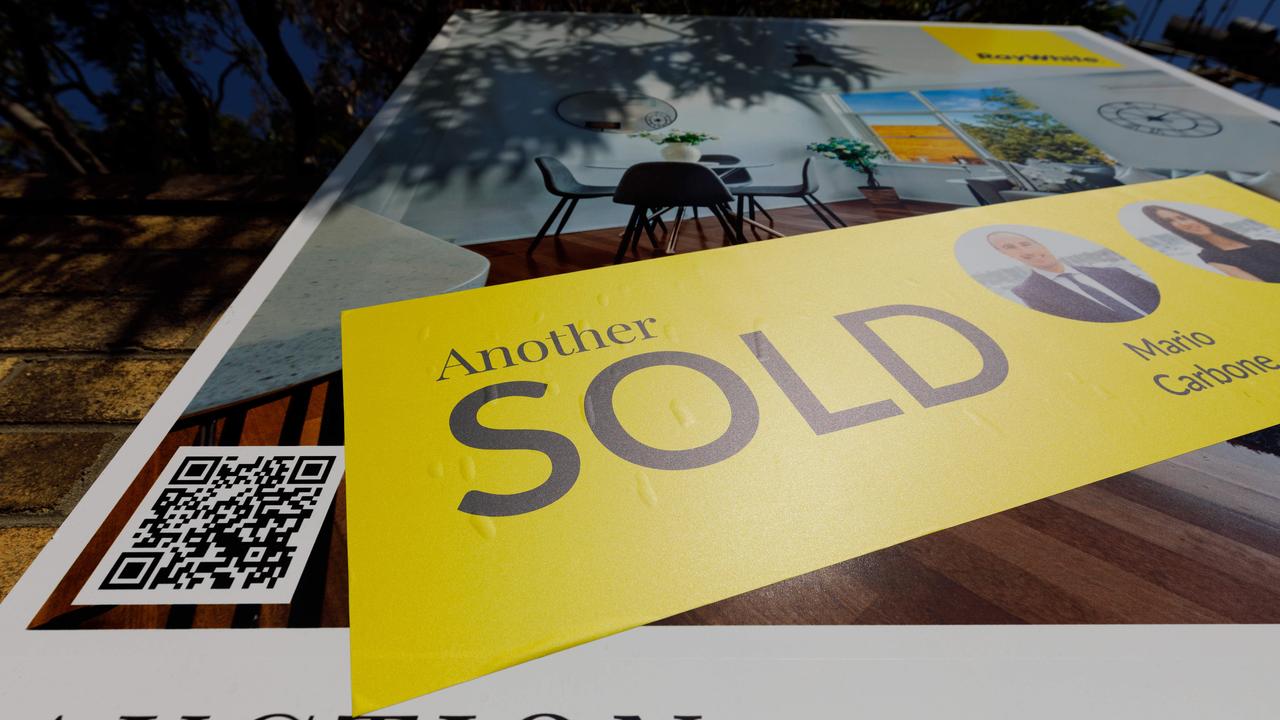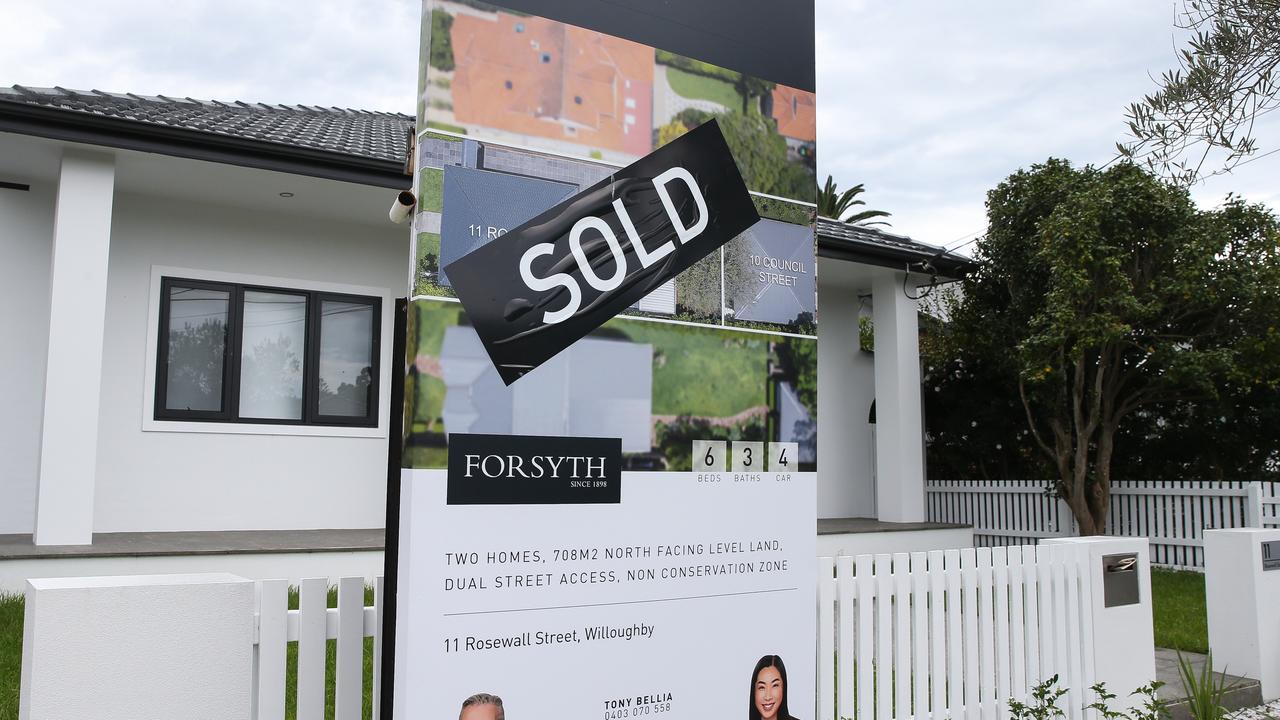Liberal Party bickers about who’s to blame for election defeat, and what to do next
The Liberals have descended into internal bickering over who’s to blame for the election defeat. Scott Morrison’s name keeps coming up.
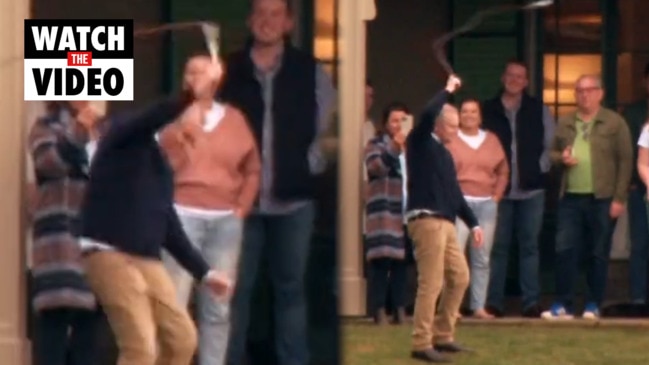
Federal Election
Don't miss out on the headlines from Federal Election. Followed categories will be added to My News.
Two days after the Coalition’s crushing election defeat, its members continue to argue over who’s to blame, and which direction the Liberals and Nationals should now take.
Anthony Albanese was sworn in as the new Prime Minister this morning, with Labor now on track to win enough seats to form a majority government.
The Coalition, meanwhile, has won just 54 seats, with only a handful remaining undecided.
It has bled seats to Labor, the Greens, and most painfully, the “teal” independents, who claimed half a dozen electorates that had been in Liberal hands for decades.
Today one MP with a talent for inflammatory language told News Corp Australia the beaten prime minister Scott Morrison should have resigned months ago, but instead “strapped himself to the Liberal Party like a suicide bomber and blew the whole show up”.
That MP is far from the only person blaming Mr Morrison, but the broader argument within the party isn’t quite so simple.
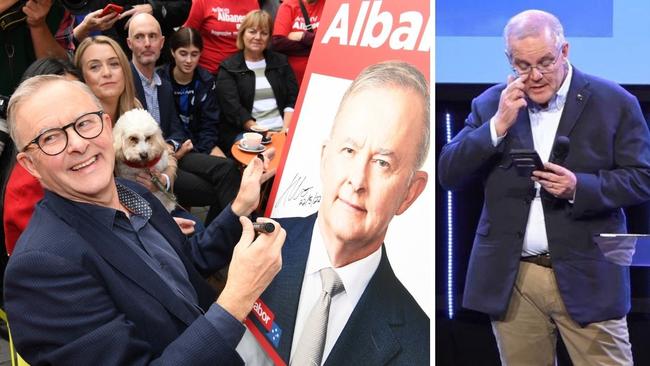
The view from the moderates
The finger-pointing started on election night, courtesy of the outgoing finance minister Simon Birmingham, who was sitting on the ABC’s panel.
The losses suffered by Liberal moderates leave Mr Birmingham as arguably the most prominent one left in parliament (he’s a Senator, so no, he can’t compete with Peter Dutton for the leadership).
Mr Birmingham spoke repeatedly about a “contagion effect”, arguing Scott Morrison’s selection of controversial anti-trans candidate Katherine Deves as a “captain’s pick” in Warringah had sabotaged the Liberals’ chances in other moderate city seats.
These remarks saw Outsiders host Rowan Dean label him a “pompous git” the next day.
Ms Deves, for her part, told Dean that the Liberal Party needed to “get back to its Liberal values”. She believed her candidacy was “maybe the start of that”, even though she performed worse in Warringah than Tony Abbott did in 2019.
Returning to election night for a moment, over on Channel 9, former foreign minister Julie Bishop highlighted Mr Morrison’s fruitless efforts to appeal to female voters.
She said the teal independents “appealed to people who felt that the moderates within the Liberal Party were not having their voices heard in a government that was led by Scott Morrison and Barnaby Joyce”.
Ms Bishop argued someone like Allegra Spender, who took Wentworth from Liberal MP Dave Sharma, “could have run for the Liberal Party” herself. Ms Spender’s father and grandfather were both politicians.
“When I’m in Sydney, girlfriends of mine that would be dyed-in-the-wool Liberals were out for Allegra Spender,” she said.
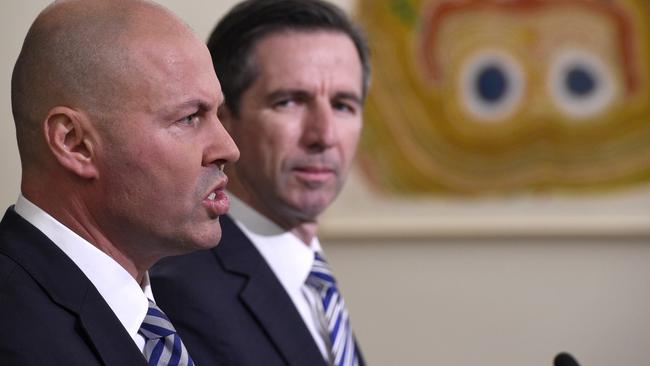
New South Wales state Treasurer Matt Kean, an outspoken moderate, has told his party to “get its act together” following the “unmitigated disaster” of the election.
“The middle ground is wanting the major parties to stand up and speak out on the issues that concern them,” Mr Kean told ABC television today.
“We need to listen to the community and we need to respond accordingly.”
In his view, that means adopting stronger climate change policies.
“After the bushfires, after the floods, after the drought, the community is seeing climate change for what it is: a generation imperative that needs strong and decisive action,” said Mr Kean. “The party has moved away from its voting base.
“We’re losing traditional heartland seats. Not because there have been mass enrolments of Labor voters or Green voters, but because Liberal voters have decided that the Liberal Party has left them. So they’ve gone and found an alternative.
“All seats we lost were to candidates advocating for stronger action on climate change; advocating for stronger positions when it comes to supporting women’s equality; candidates that were arguing to introduce an integrity commission. These were the issues that we didn’t have credible policies on, and Liberal voters left us as a result.”
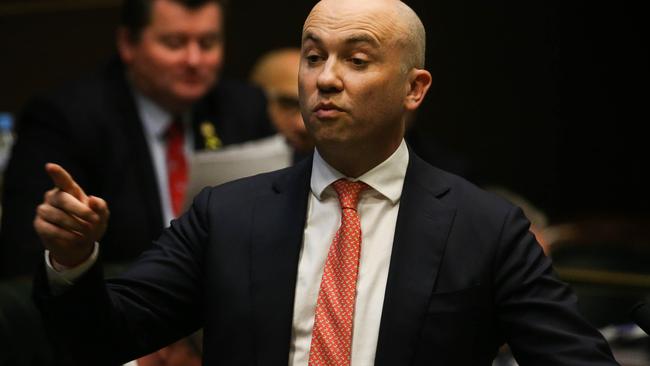
Outgoing environment minister Sussan Ley also brought up climate change policy during her appearance on Sky News this morning. Unlike Mr Kean, however, she felt the problem was less about substance and more about messaging. She said the Coalition needed to “explain our position better”.
“I heard the message about women. I heard the message of climate. We needed to do better on both of those positions,” she said.
Queensland MP Garth Hamilton told News Corp Australia the Liberals needed to avoid tacking too far to the right.
“The idea of a broad church demands that we remain reflective of a range of views. We need to continue to be that,” he said.
“Losing our left flank is going to be a challenge. Our centre of gravity needs to be in the centre-right.”
“The key thing for the Liberal and National parties is to represent aspiration,” Stuart Robert, the outgoing employment minister, told Today this morning.
“We have always been a sensible centre-right party and that is where we should stay.”
He said Peter Dutton would “make an excellent leader”, and argued “everything is on the table” to address the party’s problems appealing to women.
And Bass MP Bridget Archer – a moderate who defied the broader trend to hold her seat, even though she was defending a wafer-thin margin – said she would “resist” any tack to the right.
“I’ve seen some early commentary around some idea that the party should move further to the right, and I will certainly resist all efforts for that to occur,” she told ABC radio.
“We need to bring the party back to the centre.”
The view from the right
More conservative Liberals have essentially been making the opposite argument. They believe the election defeat was a result of the party pandering too much to the left.
“The time is now to understand that the Liberal Party’s experiment with the poison of leftism and progressivism must be over. It’s as simple as that,” South Australian Senator Alex Antic told Sky News yesterday.
“I mean, all of the people who have lost their seats were, in many cases, people who were trying to appease the climate crowd. And see what happens.”
Since election night, Queensland LNP Senator Matt Canavan has been arguing the lesson is “when we go left, we lose”.
“The policy agenda we took to the election was signed, sealed and delivered by the moderate wing of the Liberal Party,” he said.
“Doubling down seems to be the definition of insanity.”
He added that “McDonald’s can’t sell health food and the LNP can’t sell socialism”.
(I didn’t realise Scott Morrison had gone to the election with a socialist platform, but there you go.)
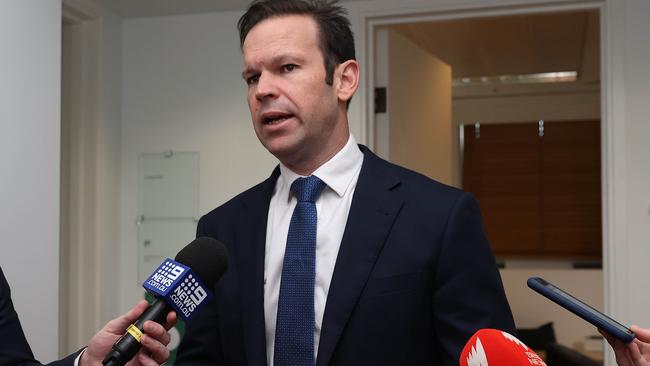
Senator Gerard Rennick argued the Liberals lost because they were “bogged down in the Covid hysteria” and focused too much on climate change.
“We can protect the environment without believing in this notion that a rise of carbon emissions is the end of mankind,” he said.
“We should have fought the issue on cost of living again.”
He had harsh words for Mr Morrison.
“Scott Morrison never had a vision, never had conviction. I went and saw him a number of times, every six months. Every sitting week there was a new crisis and the left was controlling the agenda,” said Mr Rennick.
“He never had a vision. He was just sitting there holding the position, but with no clear way forward. What was the pitch? That we were going to provide more of the same?”
The view from the Nationals
While the Liberals were wiped out in the cities, the National Party successfully defended its ground in regional and rural areas, holding all its seats (except in Queensland, where the LNP is a single party).
Leader Barnaby Joyce intends to use the junior Coalition partner’s increased influence to demand more frontbench positions.
He’s rejected the suggestion that his leadership, and some of his colleagues’ views on issues like climate change, were used to hurt the Liberals in city seats.
“Others are trying to blame us for what happened to the Liberals in the centre of Sydney,” Mr Joyce told The Financial Review.
“I’m not in the Liberal Party. I didn’t stand in central cities. It’s as ridiculous as us blaming them for losing a seat in a regional area.
“We were also up against independents, but we won, because we know how to campaign. I’ve stood as an independent.
“We know what to do. It’s hyper-local. You don’t have to be on Insiders, you have to be pushing your shopping trolley through the supermarket. You don’t have to be on Sky News, you have to be at the bowling club on a Friday night.”
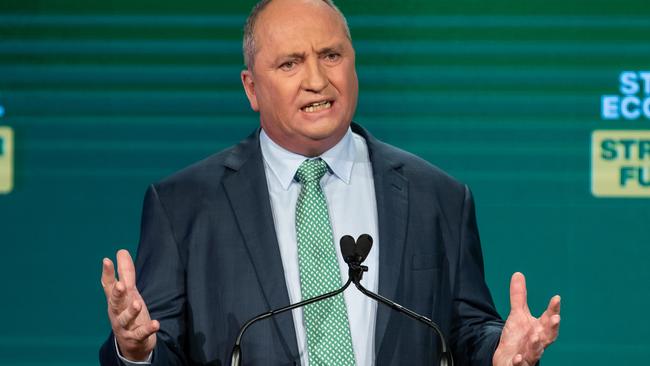
Mr Joyce’s predecessor in the leadership, Michael McCormack, has a rather different view. He argued the current leader was a drag on the Liberal vote in the cities.
“The leadership change last year shouldn’t have happened. Whether that influenced the inner city seats, where I was very popular and provided a lot of infrastructure as minister, and spent a lot of time in, will be for others to decide,” he told The Guardian.
“Very popular” might be something of a stretch there, but Mr McCormack’s reputation certainly wasn’t used as a cudgel against the Liberals in the same way Mr Joyce’s has been since he returned to the leadership.
“There were no campaigns against my name and my reputation or anything in inner city seats. I was very much welcomed in those seats,” Mr McCormack argued.
“They believed in me and what I offered as the leader of the regional party. I’ll let others decide whether that had an influence over the result.”
He didn’t rule out competing for the Nationals leadership in the future, incidentally.
On Insiders yesterday, Mr Birmingham appealed to the Nationals to “reflect upon” what they can do to help their Coalition partner.
“The National Party needs to look at where the Liberal Party has felt this pain and reflect upon how it is that we, together, can manage to form majority government in the future, and what will be necessary for us to do so,” he said.
Matt Canavan’s response: “I see no need for that.”
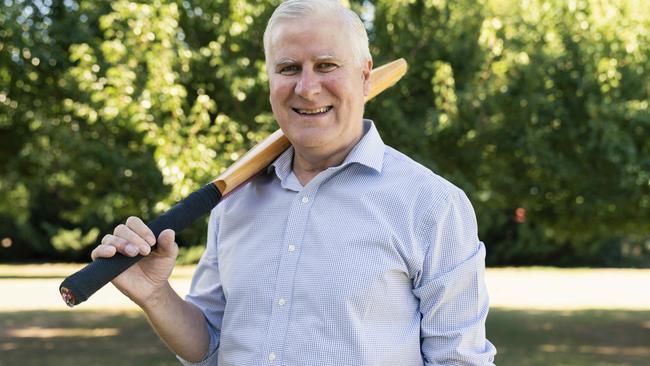
The view from the west
Of course, there were state-based factors in play in this election as well.
The Liberals unexpectedly lost four seats to Labor in Western Australia, which was previously a stronghold for the Coalition.
Senator Michaelia Cash, the most senior figure from WA, chalked up the collapse there to Mr Morrison’s decision to initially support a legal challenge attempting to force the state to open its borders, which was brought by Clive Palmer.
“Certainly that initial decision, to back Clive Palmer, even though we reversed it, meant that the Labor Party was able to run an effective campaign against us. A very strong campaign,” said Ms Cash.
“The vote was clear. Western Australians very much supported the approach of (Premier) Mark McGowan.”
Her frontbench colleague Ken Wyatt, who lost his WA seat, said the major parties needed to “listen” and “engage more”.
Originally published as Liberal Party bickers about who’s to blame for election defeat, and what to do next




